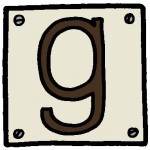
How to Write a Poem
To write a poem
Go out the front door.
Walk around
Your neighborhood,
Following your nose
Down this or that street.
Cross for the latest bloom.
Track the ants to their castle
Of dust. See where the bees
Dance their maps. Crawl
On your belly. Open your mouth
And funnel the dirt through you
Like a worm. Listen to the rhythm
Of your footsteps and the song
Of passing cars. Eat daisies.
Smell asphalt. Rub your elbows
On oak bark. All the while
Compare your trip to a bird
Or to death. But if you want
To write something new,
Go home. Go up to the attic.
Open a window and
jump.
I got another rejection this week (Can we please agree to stop calling it this? How about a “pass?” Anyone else have a suggestion?). Getting a “pass” is too common to be noteworthy. What was remarkable was that the editor said I was close and told me which of the poems he preferred. (Because he replied to me like one human being to another, I didn’t actually feel rejected.) As I considered the two poems he mentioned, I realized they had something in common, not in terms of the product, but in the process that had produced them. With both, I had somehow let go. I had stopped writing from my head and wrote from my gut. I had gone up to the roof and jumped and out in the air, I had caught something a little more unusual.
To metaphorically jump, I literally did something like a cross between free writing and brainstorming. I wrote as quickly as possible, without judging or revising, or even developing any one idea. I tried to get out as many different approaches as possible. Only after 20 or 30 or 40 different options did I go back and see if there were a few I wanted to develop. I think that by writing quickly and getting out as many ideas as possible, I was able to get off the well-worn paths and find new associations and connections.
What do you do when you want to get past the usual?
I hope you’re enjoying National Poetry Month.
Jama Rattigan has an extensive list of Kidlitosphere events celebrating our favorite month.
Irene Latham is once again hosting the Kidlitosphere Progressive Poem, which I’ll be contributing to later in the month.
For more Poetry Friday, visit Robyn Hood Black.
(c) Elizabeth Steinglass, 2013, all rights reserved








